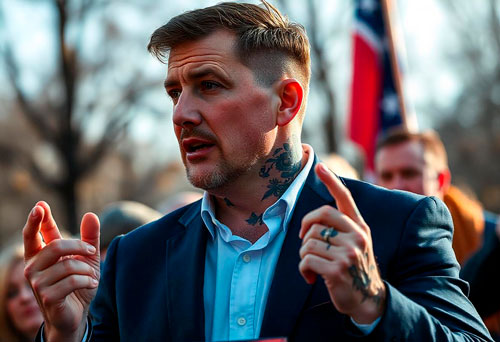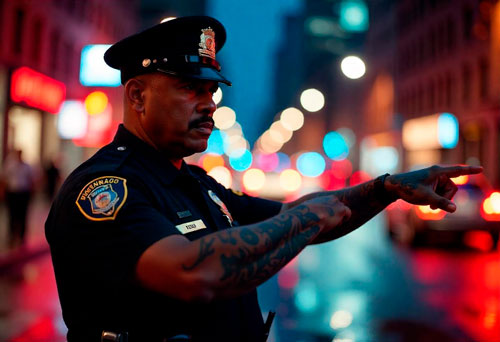
In which professions are tattoos prohibited?
Tattoos are no longer a taboo in modern society and are increasingly accepted in the workplace. However, despite this openness, there are still professions where visible tattoos remain prohibited or frowned upon.
In an increasingly open and diverse society, tattoos have become a widespread form of personal expression. However, despite their popularity, some professions still consider tattoos a limiting factor when it comes to getting a job or building a career.
In which professions are tattoos not allowed?
Although discrimination against tattoos is decreasing, some professions still have restrictions due to the image they project or for security reasons. Some of these include:
- 🚔 Law enforcement and military: Security forces such as the police, military, and civil guard usually have strict rules regarding the appearance of their members. In many countries, visible tattoos are prohibited while wearing a uniform, especially those that may be considered offensive. In some cases, tattoos are allowed but must be covered with long sleeves or specialized makeup.
- 🎩 Public office and diplomacy: High-ranking officials and diplomats represent their country or institution to other nations and organizations. For this reason, many governments expect them to maintain a traditional and formal appearance. While tattoos are not always banned, they are often preferred to be non-visible.
- 🏥 Healthcare and medical professions: The healthcare sector has very strict hygiene and professionalism standards. Although more hospitals and clinics now allow visible tattoos, some still consider them inappropriate, especially for doctors, surgeons, and nurses.
- ✈️ Hospitality and customer service: In luxury hotels, restaurants, and airlines, personal image is key. Many airlines prohibit visible tattoos on their cabin crew, and high-end hotel chains prefer a more “neutral” appearance.
- 🎓 Education and teaching: While most countries do not have explicit rules prohibiting tattoos for teachers, some private schools and universities prefer hiring educators without visible tattoos to maintain a conservative image.
- 💼 Banking and finance: Bank professionals, financial advisors, and executives often deal with high-profile clients. A formal appearance is crucial in these environments, and while tattoos are not banned, many companies prefer employees to cover them during working hours.
- ⛪ Religious roles and clergy: In many religions, tattoos are frowned upon or even prohibited. In Orthodox Christianity, Islam, and traditional Judaism, tattoos may be considered inappropriate, and it is rare to see religious leaders with them.




Why do these restrictions exist?
The reasons behind these restrictions vary depending on the profession and the company. Some of the most common ones are:
- Professional image: In some professions, tattoos are considered to project an unprofessional or informal image, which may affect clients’ or the general public’s perception.
- Safety: In professions such as law enforcement or aviation, tattoos may be seen as a risk factor or distraction.
- Hygiene: In the healthcare sector, it is argued that tattoos may make it harder to identify skin problems or increase the risk of infections.
- Discrimination: Although increasingly uncommon, discrimination against people with tattoos still exists in some workplaces.
What can you do if you have tattoos and want to work in these professions?
- Tattoo removal – At MikitattooKiller, we specialize in laser tattoo removal. Contact us for a free consultation! 😎
- Makeup or clothing – Some workplaces allow covering tattoos with appropriate clothing or specialized makeup.
- Negotiation – If you already have a job, you can try negotiating with your employer to allow visible tattoos, especially if they do not affect your performance or the company’s image.
Although tattoos can be an obstacle in some professions, they do not have to be a definitive limitation. With the right options, such as tattoo removal, you can achieve your professional goals and wear your skin with pride.


